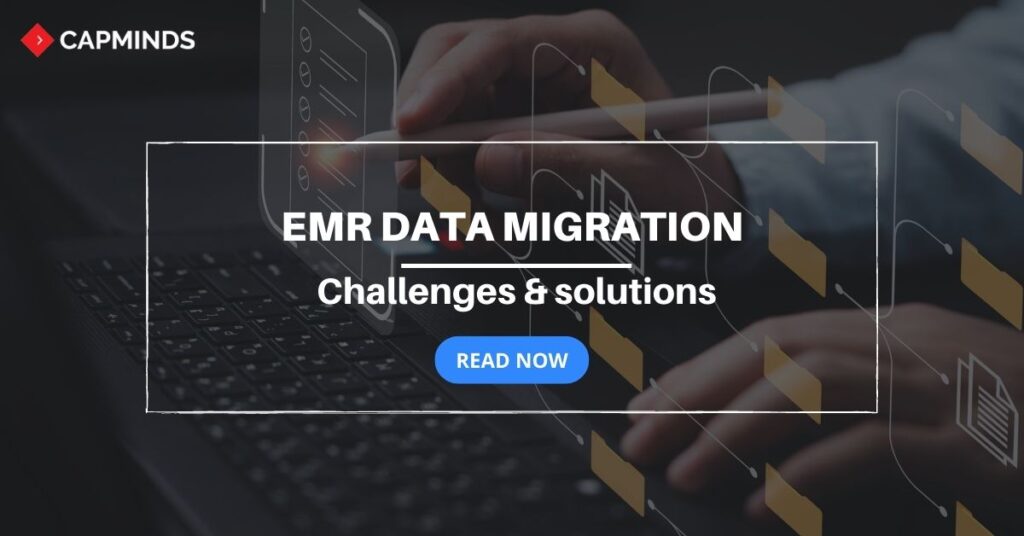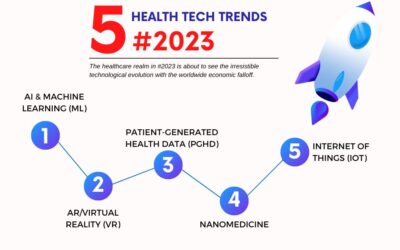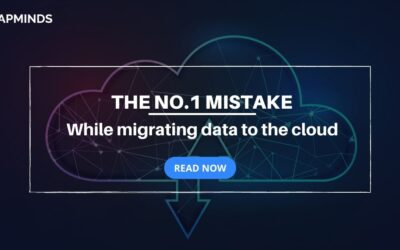Your 10 Biggest Challenges With EMR Data Migration (+ Cut Through Solutions)
Data migration is shifting data from one location to another or one application to another, or from one format to another justifying the requirement. It might be simple to think but when it comes to reality, it is a complex process.
This happens when an introduction is made with a new system or location for the data. When it comes down to business, it is the migration of legacy systems being replaced or augmented by new applications that will use the same database. This is common now as firms move from on-site applications/infrastructure to cloud-based storage for digitalized transformation.
EMR Data Migration
EMR/EHR data migration is migrating or moving data from an existing application or infrastructure to a new one by healthcare providers. An EHR contains health information like patient allergies, radiology reports, lab reports, medical history, diagnoses, treatment plans, prescription details, and much more.
Why Migrate Medical Data?
Medical data migration is done for various reasons. It might be done for upgrading servers or storage devices, or for transforming into a robust system for satisfying the complexity of patient care.
Examples:
- A clinic’s staff may struggle to work with an outdated system
- Your current EHR may not be certified to meet your current user demands
Whatever the reason may be, data migration solves issues by connecting you to new technologies. But higher values come with complexities and stress. As a healthcare provider, you need to ensure no disruptions are made to patients and staff and also need a solution that can balance patient care and operational and functional needs.
RELATED: The “No.1 Mistake” You Could Make While Migrating Health Data To Cloud
EMR Data Migration Challenges
Any data migration can be challenging and confusing sometimes, especially when it comes to EHR/EMR migration, as it contains a pyramid of data that when exposed can lead to many legal issues.
The challenges can vary depending on the scale and size of your migration project. But it can be easily overcome with proper planning, solution, and dedication so that you can ensure better outcomes.
1. Lack of compatibility
The incompatibility between the old and new systems’ data formats is a serious issue. This happens sometimes when EHR data is imported into a new system that uses a different data format or when is shifted from one system to another that uses a dissimilar database structure. It can also occur when data is shifted to another system with a different character encoding.
Solution:
This cannot be always avoided but can be managed by putting a dedicated team to work on the tests again and again until they get the perfect results. Migrating a small amount of data for testing can be helpful here.
2. Overlong process
Another challenge is that the process can be very lengthy. This happens when you have a large quantity of data to migrate. It depends upon the number of data sources & target systems, the size of your data, and the speed of your internet connection.
Solution:
Planning before migrating can help avoid this problem. The migration can be divided in ways as it doesn’t get affected by the size or any other problems.
3. Unidentifiable data sources
Data migration is not a one-time process. It happens continuously throughout the project’s life. Identifying and understanding your data sources is very much necessary to avoid any loss of data and delay in the process.
Solution:
Identifying the sources of data helps you to successfully migrate that data to your new system. This identifying process can be risky especially when you are not sure of the location of the data.
4. Insufficient documentation
When not solved, lack of documentation can be very challenging while migrating data from legacy systems. Understanding the data and migrating it will become difficult without proper documentation.
Solution:
Get as much information from the people who have worked with the legacy system to avoid this problem.
5. Data governance lacking
Data governance is an ethical approach to managing data from the time of acquisition to its disposal. The lack of data governance can result in data quality and security issues.
Solution:
Having a perfect data governance plan even before starting the project can help avoid this problem.
6. Irrelevant requirements
Unclear and irrelevant requirements can lead to misunderstandings and miscommunication between the business stakeholders and the data migration team.
Solution:
Avoid this by providing a clear-cut document that outlines details regarding all the data to be migrated, the data quality requirements, the mapping of the data, and the project timeline.
7. Inferior data quality
The quality of data is vital during data migration. Inaccurate data on the source platform can result in problems during migrating data to the appropriate platform.
Solution:
For successful data migration- lack of data, and inferior quality should be avoided.
8. Data errors
Data errors can happen due to human error or outdated data sources. This leads to incompleteness or inconsistency in data.
Solution:
Overcome this by adequately completing an accurate data set way before starting the migration process. This can be attained by data normalization and cleansing.
9. Complicated data structures
Complex data structures can stand in the way of a misfit from the new system’s structure while migrating data from one system to another.
Solution:
Understand the data structure. It is significant to understand the data structure of both systems and map the data accordingly.
10. Lack of data interoperability
Data migration can be blocked anytime by interoperability challenges. Multiple data migration tools generate them in various formats which may prove incompatible.
Solution:
To migrate data to a robust system for analytics and automation, you must ensure data interoperability. It demands knowledge of interoperability standards like HL7 FHIR, USCDI, and other sets of skills to attain successful data exchange through APIs.
EMR Data Migration Services From CapMinds
Data migration is very helpful when it comes to moving on from a legacy system to a cloud-based health system. Choosing the partner for your health data migration decides your project’s success rate. CapMinds Technologies have the best expertise in providing legacy and other healthcare systems with advanced EMR/EHR, and other healthcare data migration services.
We operate with the mandates of HIPAA, especially with patient privacy laws. CapMinds have helped many healthcare providers by simplifying and quickening the process of data migration from multiple operating systems and also offers customizable workflow solutions. CapMinds’ migrating services support all your current systems and additional workflows you require like billing, pharmacies, scheduling, etc. Proper training with 24/7 support on the new EMR/EHR is assured.
“Relieve yourself from the data migration complexities and attain advanced workflow functionalities and interoperability with us”




